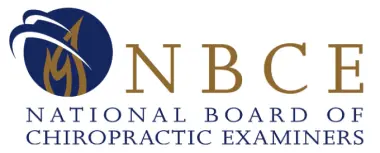




ACCRAC 2025 will engage in an exploration of emerging technologies, best practices and innovation that will certainly impact the chiropractic landscape. It will provide a forum for attendees to investigate these transformative trends in healthcare such as AI, a shift towards value-based care, digital health literacy, personalisation of treatment, treating the whole person, interdisciplinary collaboration, ethical and legal considerations and wellness.
We hope to see you in New Orleans in 2025.
March 20-22, 2025
Sheraton Hotel in New Orleans
The 2025 Association of Chiropractic Colleges Educational Conference and Research Agenda Conference (ACC-RAC) scientific submissions committee invites original research and studies that will promote the dissemination and discussion of new information.
The abstract due date is September 1, 2024.
Obtain your patient’s consent to publish or present their clinical case information at the ACCRAC conference, while ensuring their anonymity and confidentiality.

Thursday 20th
8:00am
8:00am to 4:00pm
Thursday 20th
8:30am
8:30am to 1:30pm
Thursday 20th
8:30am
8:30am to 5:00pm
Thursday 20th
12:00pm
12:00pm to 1:00pm
Thursday 20th
1:00pm
1:00pm to 2:00pm
2:00pm to 7:00pm
5:30pm to 7:00pm
Friday 21st 7:00am
7:00am to 8:00am
8:30am to 9:30am
Speaker
Dr. Marion Couch
Speaker
Victor Barocas & Beth Winkelstein
Speaker
Jean-Nicolas Poirier
Speaker
Michele Maiers, Michael Ramcharan & Krista Ward
Friday
11:00am
Speaker
Victor Barocas & Beth Winkelstein
Speaker
Jean-Nicolas Poirier
Speaker
Michele Maiers, Michael Ramcharan & Krista Ward
12:00pm to 1:30pm
1:30pm to 3:30pm
Moderator
Celia Maquire
1:30pm to 3:30pm
Moderators
Krista Ward & Hiwot Melka
3:30pm to 4:00pm
4:00pm to 6:00pm
Moderator
Weston Holzinger
6:00pm to 7:30pm
7:00am to 5:00pm
Speaker
Stuart Schrader, PhD, MA, Clinical Associate Professor, Biomedical and Applied Sciences, Indiana University, School of Dentistry
9:30am to 10:00am
10:00am to 4:00pm
Speaker
Kent Stuber
Speaker
Anthony Lisi
Speaker
Robert Vining
Speaker
Kent Stuber
Speaker
Anthony Lisi
Speaker
Robert Vining
12:00pm to 1:30pm
1:30pm to 3:30pm
Moderator
Jonathon Egan & Greg Snow
1:30pm to 3:30pm
Moderator
Stephanie Sullivan
1:30pm to 3:30pm
Moderator
Martha Kaeser
3:30pm to 4:00pm
Saturday 22nd 4:00pm
4:00pm to 5:00pm
Panelists
Drs. Ilija Arar, Waleska Crespo, Celia Maguire, Gregory Snow, Stephanie Sullivan, Krista Ward and Claire Johnson
All pricing in USD.
Conference dinner is $75pp
Continuing Education Units are an additional $100

Associate Professor in Foundational Sciences & Chair of the Principles of Healthcare Practice, Northeast College of Health Sciences

Professor of Biomedical Engineering & Associate Dean for Graduate Programs, College of Science & Engineering, University of Minnesota

CEO of IntoValue, Chair Advisory Board, Guidehealth, Adjunct Professor, Duke

Public Health Committee Chair, World Federation of Chiropractic

Chiropractic Program Director, Veterans Health Administration, Assistant Professor, Yale School of Medicine, Section of Biomedical Informatics and Data Science

Dean of Academics, College of Chiropractic, Parker University

Executive Director of Research and Innovation, Northwestern Health Sciences University

Executive Dean College of Chiropractic Education, Southern California University of Health Sciences

Vice-Provost & Assistant Vice-President of Academic Affairs, Southern California University of Health Sciences

Clinical Associate Faculty, Behavioral Sciences IU School of Dentistry & Co-Founder XR4RAP

Senior Campus Administrator and Dean of Academic Affairs at Palmer College of Chiropractic

Clinician Scientist & Assistant Professor, Parker University Research Center, Adjunct Professor, Canadian Memorial Chiropractic College

Associate Vice President of Research at Life University

Professor, Associate Dean of Clinical Research, Palmer College of Chiropractic

Research Specialist, Life Chiropractic College West

Distinguished Professor of Bioengineering & Neurosurgery, University of Pennsylvania
Sheraton Hotel, 500 Canal Street, New Orleans, LA
Hotel taxes and resort fees are additional.
The Sheraton New Orleans Hotel places guests in the heart of New Orleans’ vibrant energy, just steps from the iconic French Quarter and bustling CBD.
Visitors can relax in luxurious, pet-friendly rooms with premium amenities, enjoying sweeping views of the French Quarter or the Mississippi River through floor-to-ceiling windows.
With 105,000 square feet of versatile meeting space, it’s an ideal choice for conference attendees, providing seamless access to the Ernest N. Morial Convention Center, Caesars Superdome, and Smoothie King Center.
Guests can unwind by the rooftop pool, recharge in the fully equipped fitness center, and savor New Orleans flavors at Pelican Bar or enjoy coffee from the lobby Starbucks. Club Lounge access adds to the elevated experience, while weekly Sheraton Gatherings allow guests to connect and embrace the spirit of the Crescent City.
Thank You to our Sponsors!
The National Board of Chiropractic Examiners (NBCE), including the International Board of Chiropractic Examiners (IBCE), is the international testing agency for the chiropractic profession.
The NBCE develops, administers and scores standardized exams that assess knowledge, higher-level cognitive abilities and problem-solving in various basic science and clinical science subjects.
At Standard Process, we go to great lengths to fulfil our mission of changing lives – from cultivating nutrient-dense soil on our certified organic farm to formulating new products at our Nutrition Innovation Center. Our unwavering focus on quality and testing allows us to manage the purity, safety, and consistency of our supplements.
We stand by our quality by ensuring what goes into our products every step of the way with our vertically integrated processes. We then work with our practitioners to ensure the best outcomes for their patients.
NCMIC was founded in 1946 by chiropractors who weren’t satisfied with their insurance options. We’ve never strayed far from that spirit, always striving to do the right thing for our customers and our community at every opportunity, even when it means paving the way.
Whether it’s malpractice insurance, business insurance, credit card processing, equipment loans, or financial and insurance products, we provide customers with the thoughtful solutions they need to grow their businesses.
The Journal of Manipulative and Physiological Therapeutics (JMPT) is an international and interdisciplinary journal dedicated to the advancement of conservative health care principles and practices.
The Journal publishes original primary research and review articles of the highest quality in relevant topic areas. The JMPT addresses practitioners’ and researchers’ needs by adding to their clinical and basic science knowledge and by informing them about relevant issues that influence health care practices.
Approval status currently pending for ACCRAC. Check back soon.
Earn up to 13 CEUs at ACCRAC 2025. CLICK HERE for approval status in your state or download here.
Attendees must register online using a credit card as payment for conference fees. Your registration is complete when payment is received in full. If you are employed by an ACC member institution, you may register at the member rate. To ensure your name appears correctly on your badge, ACC must receive your registration no later than five (5) business days prior to the start date of the conference. You may still register onsite.
Once your conference payment has been processed you will immediately receive an email confirmation receipt from Eventbrite. If you have not received an electronic receipt, please contact [email protected].
Registration cancellation and refund requests must be submitted by email to [email protected] by February 9, 2025, to be eligible for a refund and are subject to a $50 cancellation fee. Requests received after this date are not eligible for a refund. Allow up to six (6) weeks after the close of the conference for refunds to be processed and issued.
Attendees must be registered for ACCRAC to participate in conference activities. Registrants must wear conference credentials (i.e., badges) at all times to ensure admission to conference activities and designated areas.
ACC reserves the right to modify the program based on space, speaker schedule or other circumstances. The latest schedule and information are available on ACC’s website www.chirocolleges.org.
ACC negotiates a special hotel rate for conference attendees; housing is not included in your conference registration fees. You are responsible for making your own hotel reservation.
The deadline is generally three weeks prior to the start of the conference to make your reservations at the special ACC conference rate. Please check the conference website for specific hotel information and make your reservations promptly to ensure room availability at the discounted rate.
Occasionally, room blocks fill before the hotel deadline, although the hotel may have additional rooms at a higher rate. If the conference headquarters hotel is completely sold out, please plan for alternative lodging.
ACC is committed to making the conference accessible to all individuals. Participants with special physical needs or food restrictions should email [email protected] by February 10, 2025. Contact the hotel directly with any special hotel room accommodations/requests.
During registration, you may opt-in to receive e-mail notifications about future ACC events and other services. To unsubscribe from email communications, click the “unsubscribe” link at the bottom of the email.
Photographs and video may be taken at this event by ACC staff members for use on ACC’s website, marketing materials and other association publications. By registering for this event, you consent to ACC staff members photographing, filming, and using your image. Content of the scientific presentations will not be photographed or recorded.
Attendees are strictly prohibited from carrying firearms, knives, and other weapons that could be used to cause injury to others, whether concealed or displayed, at the event venue and related activities. ACC reserves the right, in its sole discretion, without refund, to eject attendees who violate this policy from and participation at future ACC conferences, events, and programs my be barred and/or restricted. Attendees must comply with this policy, regardless of any signage located at the event venue or any weapons permit they may hold.
ACCRAC is intended to be a safe, respectful, and welcoming environment for all participants, regardless of race, gender, gender identity and expression, age, sexual orientation, disability, physical appearance, national origin, ethnicity, political affiliation, or religion. Harassment in any form will not be tolerated. Immediate compliance of this policy of participants who are asked to stop harassing behavior is expected. ACC reserves the right at its sole discretion to remove any participant who violates this policy without a refund and may be banned from future ACC events.
Offensive comments, verbal threats or demands, sexualized images in public spaces, intimidation, stalking, harassing photography or recording, disruption of sessions or events, and unwelcome physical contact or sexual attention are examples of harassment which can also include intentional, or unintentional unwanted or negative messages based solely on appearance.
ACCRAC is generally business/business casual dress.

Ilija Arar, DC is a dedicated educator with 24 years at Northeast College of Health Sciences, serving as an Associate Professor in Foundational Sciences and Chair of the Principles of Healthcare Practice department.
He gravitates towards educational research and am committed to enhancing healthcare education through best practice applications.

Victor Barocas, PhD, is a Professor of Biomedical Engineering and the Associate Dean for Graduate Programs in the College of Science and Engineering at the University of Minnesota.
His lab uses a combination of experimental and computational tools to study the biomechanics of soft tissues, primarily those of the cardiovascular and musculoskeletal systems.
He has supervised 34 Ph.D. students and published over 160 papers. He served as Co-Editor of the Journal of Biomechanical Engineering with Prof. Winkelstein.

Marion Everett Couch, MD, PhD, MBA, serves as Chief Executive Officer at IntoValue Inc, a company committed to empowering self-insured employers and physicians to change healthcare with direct to employer partnerships.
She also serves as Chair of the Executive Advisory Board at Guidehealth, an AI-enabled digital healthcare platform that supports health systems in value-based care.
Prior to this role, she was the Senior Vice President of Health Care Services and the Chief Medical Officer at Cambia Health Solutions which administers the Regence Blue Cross Blue Shield (BCBS) health insurance plans spanning four states. She also worked closely with Cambia’s venture capital company, Echo Health Ventures, as an advisor to the team.
Prior to this role, Dr. Couch was Senior Medical Advisor (career) in the Office of the Administrator at the Centers for Medicare & Medicaid Services (CMS) in Washington, DC, which had a $1.4 trillion annual budget and insured 145 million Americans. In this cross-cutting role within the agency, she reported directly to the Administrator to work on policy creation, improvements in quality programs, and national coverage decisions.
During the pandemic, she helped lead the vast expansion of telehealth. She was involved in developing value-based payment models in the Center for Medicare and Medicaid Innovation (CMMI), with special emphasis on longitudinal care for chronic conditions.
Before joining CMS, she held senior leadership roles at several large medical centers. She began her career as a faculty member at Johns Hopkins Hospital and has published 100 articles and chapters.
Dr. Couch is a trained head and neck surgeon with advanced microvascular surgery training. She received her medical degree from Rush Medical College and residency training at Johns Hopkins Hospital. She has an MBA with a concentration in healthcare Management degree from the Duke University Fuqua Business School and is currently an Adjunct Professor in the Duke University School of Medicine.

Claire Johnson, DC, MSEd, PhD is a chiropractor, licensed in the state of California, USA.
She earned her Doctor of Chiropractic degree from the Southern California University of Health Sciences, master’s degree in health professions education from the University of Southern California Rossier School of Education, Medical Education division of Keck School of, and a doctorate in public health (epidemiology) from Walden University.
She serves as the Chair of the Public Health Committee for the World Federation of Chiropractic. She is a Professor at the National University of Health Sciences where she serves as the Editor in Chief of three scientific, peer-reviewed journals.

Anthony Lisi, DC is the Chiropractic Program Director for the Veterans Health Administration, and an Assistant Professor at the Yale School of Medicine, Section of Biomedical Informatics and Data Science.
Dr. Lisi has authored over 70 peer-reviewed papers on topics including low back pain management, spinal manipulation, interprofessional education, and chiropractic services.

Celia Maguire, DC, DACBR has been involved with chiropractic education for 23 years as a Professor of Clinical Sciences, Clinic Radiologist and now Dean of Academics for the College of Chiropractic at Parker University.
Dr. Maguire’s strives to ensure educational best practices in clinical assessment, an authentic clinical experience in the didactic environment, and data-driven leadership.

Michele Maiers , DC, MPH, PhD is Executive Director of Research and Innovation at Northwestern Health Sciences University, where she leverages high quality research to inform healthcare policy and innovation initiatives on local, regional and national levels.
She is also Co-Director of the RAND REACH Center, where she facilitates research activity both within and across institutions that train complementary and integrative health practitioners.

Nic Poirier, DC, EdD received his chiropractic degree from Université du Québec à Trois-Rivières, Canada and his doctor of education degree in executive leadership from St. John Fisher College in Rochester, NY. He obtained a Diplomate in Radiology from the American Chiropractic Board of Radiology.
Prior to his current administrative appointment, he held the position of residency director, dean of academic affairs and services, and dean of the school of health sciences and education at Northeast College.
His research interests include strategic management and competitiveness of academic programs.

Michael Ramcharan, MD, DC, MPH, EdD s a distinguished figure in public health and integrative healthcare education.
He serves as the Vice-Provost and Assistant Vice-President of Academic Affairs at Southern California University of Health Sciences (SCU).
With multiple advanced degrees in both conventional and complementary medicine and over 25 years of experience, he has significantly impacted healthcare education and clinical practice.

Stuart M. Schrader, PhD, MA is currently a Clinical Assoc. Prof. of Behavioral Sciences at Indiana University (IU) School of Dentistry, IU Extended Reality Initiative Fellow, Adjunct Prof. Newcastle University School of Dental Sciences, & Co-Founder of XR4RAP, an XR multi-platform solution’s company focused on mitigating patients’ anxiety & pain.
Current interests include integration of XR tech within clinical practices, post-humanist health care education & it’s application within simulated clinical education.

Gregory Snow, DC, Senior Campus Administrator and Dean of Academic Affairs at Palmer College of Chiropractic San Jose CA, is responsible for academic programs.
Previously, Dr. Snow served as Dean of Clinics, overseeing on- and off-campus clinic programs. He also served as a clinical professor for seven years, managing patient care and mentoring interns. He maintained a private practice from 1990 to 2003.
Dr. Snow has authored four articles in peer-reviewed, Pub-Med journals and serves as a peer reviewer for four scientific journals. He earned a B.A. degree from the University of Iowa in chemistry and worked briefly in the biotechnology industry prior to entering the chiropractic profession.

Kent Stuber, BSc, DC, MSc, PhD, is a practicing chiropractor who has been the Editor-in-Chief of the Journal of the Canadian Chiropractic Association for nearly ten years. He has peer reviewed for numerous other journals and conferences.
He is a Clinician Scientist and Assistant Professor working in the Parker University Research Center and an Adjunct Professor at the Canadian Memorial Chiropractic College.
He has published over 60 articles and his work has appeared in nearly 20 different peer-reviewed journals.

Stephanie Sullivan, DC, PhD serves as the Associate Vice President of Research at Life University.
She provides leadership to the Complementary Healthcare Advanced Research and Leadership Institute (CHARLI) and serves as director of the Dr. Sid E. Williams Center for Chiropractic Research.
She is a graduate of Life University’s Doctor of Chiropractic program and the University of Georgia’s Interdisciplinary Doctor of Philosophy in Neuroscience program within the Biomedical and Health Sciences Institute.
Dr. Sullivan’s research interests include healthy aging, cognitive efficiency, stress, and the effect of chiropractic care on brain-body neuroplasticity.

Robert Vining, DC is a Professor and Associate Dean of Clinical Research at Palmer College of Chiropractic, Davenport, IA.
His experience includes clinical practice, classroom and clinical teaching at chiropractic training institutions, and conducting clinical and educational research.
Dr. Vining is the 2019 recipient of the American Chiropractic Association, Academician of the Year award. He is a lead or co-author on over 60 peer-reviewed publications related to chiropractic care and clinical education.

Krista Ward, DC, MPH is an experienced educator in clinical, public health, and academic settings.
She is a research specialist at Life Chiropractic College West and has published educational and health services research as well as developed/implemented public health and research literacy courses.
Research interests include health disparities, non-pharmacological pain management, quality of life and well-being, and educational effectiveness

Beth Winkelstein, PhD, is Eduardo D. Glandt President’s Distinguished Professor of Bioengineering and Neurosurgery at the University of Pennsylvania.
Her lab studies biomechanical mechanisms, diagnostics and treatments for spine pain.
She has been funded by the Whitaker Foundation, CDC, DOD, NIH, NSF, NHTSA, CSRS, OMSF, and industry partners and has published over 160 papers and edited Orthopaedic Biomechanics.
She holds 3 patents and was the Co-Editor of the Journal of Biomechanical Engineering.

Lorem ipsum dolor sit amet, consectetuer adipiscing elit. Aenean commodo ligula eget dolor. Aenean massa. Cum sociis natoque penatibus et magnis dis parturient montes, nascetur ridiculus mus. Donec quam felis, ultricies nec, pellentesque eu, pretium quis, sem. Nulla consequat massa quis enim.
Donec pede justo, fringilla vel, aliquet nec, vulputate eget, arcu. In enim justo, rhoncus ut, imperdiet a, venenatis vitae, justo. Nullam dictum felis eu pede mollis pretium. Integer tincidunt. Cras dapibus. Vivamus elementum semper nisi. Aenean vulputate eleifend tellus. Aenean leo ligula, porttitor eu, consequat vitae, eleifend ac, enim.
Value-based care is transforming healthcare delivery, shifting the focus from volume to outcomes. What does this mean for chiropractic?
This session will unpack the principles of value-based care, explore its implications for chiropractic practice, and highlight why embracing this model is critical in the evolving healthcare landscape.
Learn practical strategies to educate and align practice with value-based care, improve patient outcomes, and thrive in a system that rewards quality over quantity.
Presented by: Jean-Nicolas Poirier, DC, EdD, Assistant VP of Academic Affairs, Northeast College of Health Sciences
This presentation will explore effective practices for assessing clinical competencies of students and residents, highlighting the integration of various evaluation methods.
Attendees will learn about different assessment models, their strengths and limitations, and methodologies that are used in healthcare education to promote accurate and fair measurement of clinical skills.
The session will also cover strategies for providing constructive feedback to support student learning and improve clinical skills development.
A Whole Health approach to well-being promotes and empowers individuals to take charge of all aspects of their health, while also articulating the role that institutions and societal structures play in these matters.
There is growing momentum among the Veterans Health Administration and other systems to move towards a Whole Health framework and there is an opportunity for chiropractors to be more involved in this paradigm shift.
In this workshop, attendees will explore how chiropractic care contributes to Whole Health and discuss directions for the chiropractic profession to leverage their value proposition to advance the Whole Health movement. Participants will have an opportunity in this session to contribute to white paper on chiropractic’s role in advancing the whole health movement.
Assessment of AI-Generated Content within the Chiropractic Curriculum
Moderated by Brett Guist
Holistic perspectives on human health are integral to chiropractic practice. This session presents research exploring how the nervous system and other body systems work together in regulating health.
Temporal Progression of Brain Connectivity Changes Induced by Chiropractic Manipulation: A Feasibility Study
Moderated by Krista Ward and Hiwot Melka
Mark Pfefer, Benjamin Holmes, Jacob Stoneberger, Edward Kutsar
Patient-Centered Ageism: A Qualitative Analysis Exploring Tensions About Caring for Older Adults in Written Feedback of Chiropractic Students
Moderated by Ilija Arar
Healthcare schools have begun exploring the merits, challenges and opportunities of artificial intelligence (AI) and extended reality (XR) technologies but have not done enough to critically examine emerging technologies within an ethical, professional and behavioral framework.
This session looks at the socio-technical-political-cultural background of AI’s evolution and integration within healthcare, provides a backdrop for outlining a relationship centered post humanistic clinical care model and paves the way for disruptive pedagogical exploration of the importance of student-centered assignments that challenge present-day perceptions of ways to adopt and integrate AI systems as colleagues rather than adjunctive tools.
Presented by: Anthony Lisi, DC, Director, VHA Chiropractic Program
October 2024 marked the 20-year anniversary of the implementation of chiropractic services in the Veterans Health Administration. This session will chronicle the impact of the VA Chiropractic Program on the US chiropractic profession with respect to patient care, clinician education and research, and will present cutting-edge opportunities for emerging collaboration and development.
Presented by Robert Vining, DC, DHSc, Palmer Center for Chiropractic Research, Palmer College of Chiropractic
For patients with neck pain, care is ethically informed by data synthesized from historical and clinical evaluation findings. However, collecting, organizing, and synthesizing relevant data to inform diagnosis and treatment is a complex process.
This session will present relevant information for educators and practitioners who conduct or oversee activities related to cervical spine examinations.
Guiding principles, goals, and strategies related to evidence-based clinical examination will be presented. Resources to help educators align learning outcomes, course activities, and assessment related to cervical spine evaluation will also be discussed.
Moderated by Jonathon Egan & Greg Snow
Examining incongruity between professional education and regulatory discipline
Stuart Kinsinger, Nancy Kirsch
Introduction of a pre-matriculation ‘Biochemistry Boot Camp’ course: Pilot group results
Lia Nightingale
Panelists: Drs. Ilija Arar, Waleska Crespo, Celia Maguire, Gregory Snow, Stephanie Sullivan, Krista Ward and Claire Johnson
This session will present the findings of a scoping review of the entire body of education research literature published in the past 50 years and its impact on education and future research. Learn about the breadth and depth of the literature that will create the foundation for the next research agenda for chiropractic education.